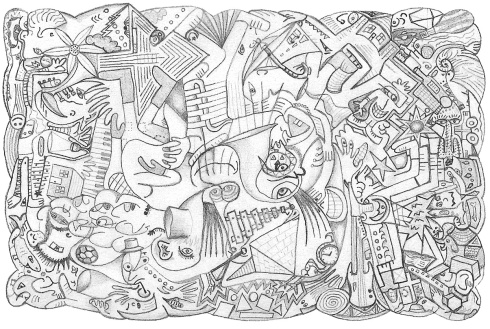
Below is a list of major areas of study I put together based on a survey of various university departments:
Humanities
- Religion
- Philosophy
- Epistemology
- Metaphysics
- Logic
- Ethics
- Aesthetics
- Languages/Linguistics
- Phonetics
- Phonology
- Morphology
- Lexicology
- Syntax
- Semantics
- Pragmatics
- Discourse Analysis
- Literature
- Visual Arts
- Painting
- Drawing
- Photography
- Sculpture
- Crafts
- Calligraphy
- Performing Arts
- Music
- Theater
- Dance
- Film
- History
Formal Sciences
- Mathematics
- Computers
- Systems
Natural Sciences
- Physics/Astronomy
- Chemistry
- Biology/Life
- Geology/Earth
Social Sciences
- Psychology
- Sociology
- Political
- Economics
- Anthropology/Archaeology
- Geography
- Cultural/Area
Applied Sciences
- Engineering
- Medicine
- Agriculture
- Environmental
- Library/Museum
- Education
- Communication
- Cognitive
- Family/Consumer
- Social Work
- Public Affairs
- Law
- Business
- Design/Architecture
- Transportation
- Military
- Athletics
What is the goal? What are the goals? Can we know God with the wisdom obtained through these human-designed studies?
“For since, in the wisdom of God, the world did not know God through wisdom, it pleased God through the folly of what we preach to save those who believe.” (1 Corinthians 1:21)
These studies are all an outgrowth of human nature, our experience of nature, but also our inherent knowledge of the divine. Therefore some of God’s nature can seep out to make such studies engaging, helpful, fun, beautiful, and true, but they cannot be full without as a basis an understanding of what this “folly” is and who it is about.
“For by him all things were created, in heaven and on earth, visible and invisible, whether thrones or dominions or rulers or authorities—all things were created through him and for him.” (Colossians 1:16)
These things (our authorities) are through and for him. Only in that do they contribute. So only in that can they be engaging, helpful, fun, beautiful, and true. This is a presupposition based on Scripture.
Next to explore: How are these through him and for him?
———-
And as a bonus here are the main categories of the Dewey Decimal system:
- 000 Computers, Information, General
- 100 Philosophy, Psychology
- 200 Religion
- 300 Social Sciences
- 400 Language
- 500 Science, Math
- 600 Technology
- 700 Arts, Recreation
- 800 Literature
- 900 History, Geography,Biography
